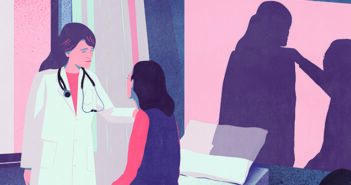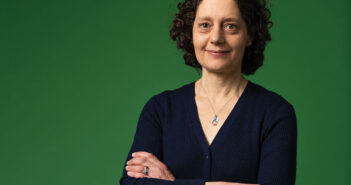Never too late.
Living across the state line in Massachusetts, my work life in Providence rarely intersects with my home life. But this issue’s feature story on what happens to infants born addicted to opioids led us to my hometown of New Bedford.
When the opioid epidemic started grabbing national headlines a few years ago, I had to scoff. We had been dealing with our own heroin epidemic in New Bedford since the 1980s. I saw classmates and even a member of my family trapped in the cycle of addiction that ultimately resulted in death. With the media and politicians finally paying attention to what is now a “crisis,” people from inner city neighborhoods and lower socioeconomic groups have expressed some bitterness: no one cared until “good” kids from “good” families started dying. No one cared when it was happening to us.
But I don’t waste time on recrimination. In the here and now, new health policies and laws are in place, both in Rhode Island and Massachusetts. The opioid task force convened by Rhode Island Governor Gina Raimondo, on which many Brown faculty members serve, created a new comprehensive website for monitoring and finding help for people who are addicted. And there are new programs and research, which you’ll read about in this issue, to help vulnerable infants swept up in their mothers’ addiction.
For its part, Alpert Medical School is educating medical students about proper prescribing practices and caring for patients who are addicted to opioids. In early October, a student-led symposium to discuss health disparities in the opioid crisis was held in conjunction with the School of Public Health. Earlier this year, we signed on to the Association of American Medical Colleges’ pledge to provide instruction and training in opioid use and dependence, to promote research to direct how to respond within the context of policy and medicine, and to advance clinical innovations to combat opioid dependence. And last spring, the annual interprofessional workshop that brings together nursing, social work, and pharmacy students with our medical students to facilitate a team approach to care focused on addiction cases. The lesson was clear: addiction is a multifaceted issue, and it’s going to take caregivers of all types to help these patients.
In the end, that’s all that really matters.

Kris Cambra
Editor



